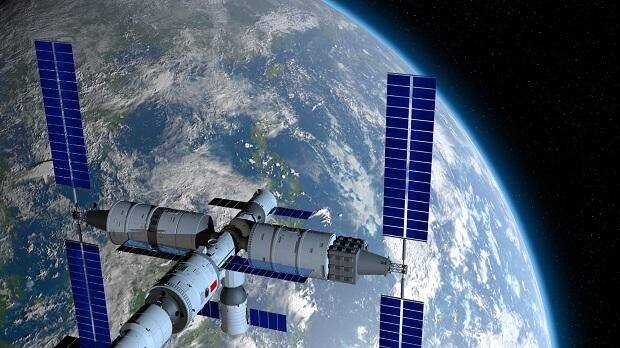
China's 4th manned mission to its space station launches tomorrow
What's the story
China has revealed plans for its fourth manned mission to its space station, with a new three-member team ready to take over operations for the next six months.
For this, the Shenzhou-19 spacecraft will launch at 4:27am (Beijing Time) tomorrow from the Jiuquan Satellite Launch Centre in northwest China, the China Manned Space Agency (CMSA) announced.
Lin Xiqiang, the Deputy Director of CMSA, made the announcement at a press conference at the Jiuquan Center.
Mission details
Shenzhou-19: A milestone in China's space program
The Shenzhou-19 mission is the 33rd flight of China's manned space program, and the fourth manned mission in the application and development stage of its space station.
The spacecraft will be launched on a Long March-2F carrier rocket.
After entering orbit, it will conduct an automated rendezvous and docking with the front port of the space station core module Tianhe in about 6.5 hours, forming a combination of three modules and three spacecraft.
Crew profile
Meet the astronauts of China's upcoming space mission
The Shenzhou-19 mission will be manned by: Cai Xuzhe, Song Lingdong, and Wang Haoze.
Cai, a veteran of the Shenzhou-14 space mission in 2022, will be the commander while Song is a former air force pilot.
Wang served as a senior engineer at the Academy of Aerospace Propulsion Technology under China Aerospace Science and Technology Corporation.
She is China's only female spaceflight engineer and will be the third Chinese woman to embark on a crewed spaceflight mission.
Research goals
Shenzhou-19 crew's research agenda in space
The new astronauts will replace a three-member team that has been operating the station for the last six months.
They will conduct 86 space science research and technology experiments across various fields, like life science, micro-gravity fundamental physics, space medicine, space material science, and new space technologies.
The Shenzhou-19 crew will also perform structural analysis of protein crystal growth and non-equilibrium dynamics of soft matter under micro-gravity conditions.
Station features
China's space station: A unique presence in orbit
China is the only country to own a space station at the moment, with its China Space Station (CSS) poised to be a competitor to International Space Station (ISS)—owned by a partnership of space agencies from US, Russia, Europe, Japan, and Canada.
The CSS is also unique for its two robotic arms, particularly the long one which can grab objects, even satellites, from space.
Observers say CSS may be the only space station to stay in orbit after ISS retires.